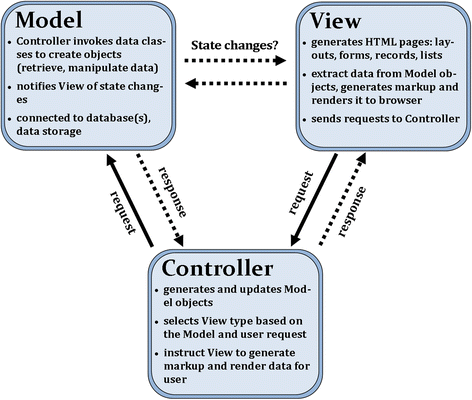Implementation of clinical research trials using web-based and mobile devices: challenges and solutions
- PMID: 28302050
- PMCID: PMC5356263
- DOI: 10.1186/s12874-017-0324-6
Implementation of clinical research trials using web-based and mobile devices: challenges and solutions
Abstract
Background: With the increasing implementation of web-based, mobile health interventions in clinical trials, it is crucial for researchers to address the security and privacy concerns of patient information according to high ethical standards. The full process of meeting these standards is often made more complicated due to the use of internet-based technology and smartphones for treatment, telecommunication, and data collection; however, this process is not well-documented in the literature.
Results: The Smart Heart Trial is a single-arm feasibility study that is currently assessing the effects of a web-based, mobile lifestyle intervention for overweight and obese children and youth with congenital heart disease in Southwestern Ontario. Participants receive telephone counseling regarding nutrition and fitness; and complete goal-setting activities on a web-based application. This paper provides a detailed overview of the challenges the study faced in meeting the high standards of our Research Ethics Board, specifically regarding patient privacy.
Conclusion: We outline our solutions, successes, limitations, and lessons learned to inform future similar studies; and model much needed transparency in ensuring high quality security and protection of patient privacy when using web-based and mobile devices for telecommunication and data collection in clinical research.
Keywords: Obesity; Paediatric cardiology; Privacy; Security; Web-based technology; e-health.
Figures


References
-
- Chakravorty R. A programmable service architecture for mobile medical care. In: Fourth Annual IEEE International Conference on Pervasive Computing and Communications Workshops (PERCOMW’06): 2006. Pisa: IEEE; 2006. pp. 532–36. doi:10.1109/PERCOMW.2006.11.
-
- Matthews M, Doherty G, Coyle D, Sharry J. Designing mobile applications to support mental health interventions. Handbook of research on user interface design and evaluation for mobile technology. 2008;635-656.
Publication types
MeSH terms
LinkOut - more resources
Full Text Sources
Other Literature Sources
Medical

